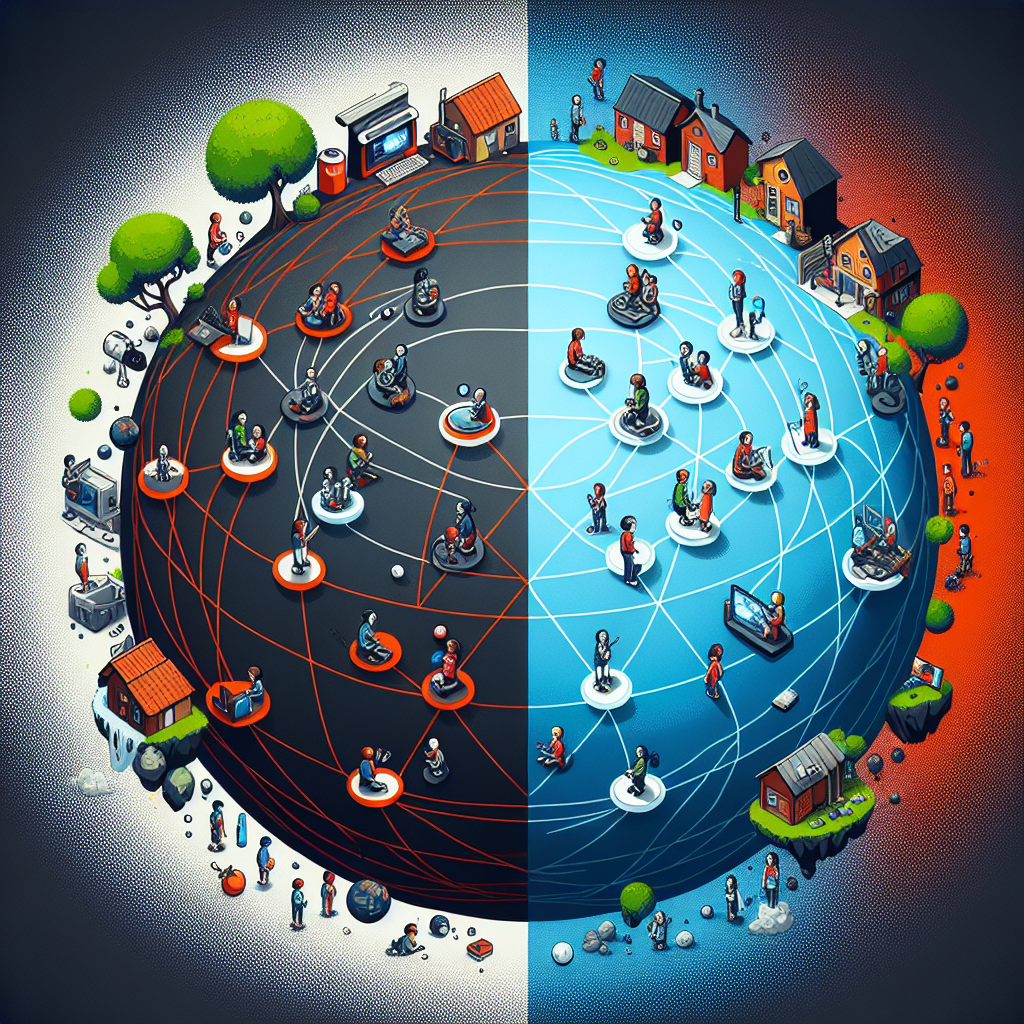Local vs. Global: The Dual Nature of Gaming Communities in 2025
As the gaming landscape continues to evolve in 2025, one of the most notable developments is the dichotomy between local and global gaming communities. This dual nature influences how players interact, compete, and forge friendships while redefining the very fabric of gaming culture. Understanding the interplay between local and global elements offers a comprehensive view of the social dynamics that underpin the gaming experience today.
The Rise of Local Gaming Communities
In recent years, there has been a resurgence of interest in local gaming communities, driven by several factors that make offline interactions increasingly appealing. Community game nights, local tournaments, and in-person events are on the rise, fueled by a desire for genuine social connections that can sometimes be lost in the vast online world.
Local gaming hubs, such as cafes, arcades, and community centers, have become focal points for gamers to gather, collaborate, and compete. These spaces not only provide access to gaming content but also create a unique atmosphere characterized by camaraderie and shared experience. A critical aspect of this local resurgence is its diversity; players of all ages, backgrounds, and skill levels can come together, breaking down barriers that often exist in more anonymous online settings.
Local tournaments have also gained popularity, making it easier for emerging players to gain recognition within their communities. While competitive gaming has predominantly thrived in the global arena, local competitions serve as the breeding grounds for new talent. These smaller events provide an opportunity to develop skills and celebrate local champions, nurturing a sense of belonging and community pride.
The Expansive Reach of Global Gaming Communities
In contrast, the global gaming community continues to flourish and expand, driven by advancements in technology. High-speed internet access and cloud gaming have linked players across continents, enabling a seamless interaction that was barely imaginable a decade ago. Gamers can compete in tournaments streamed worldwide, engage in massive multiplayer online games (MMOs) with friends across the globe, and participate in virtual events that connect millions.
Platforms like Twitch and YouTube have revolutionized content creation, making it possible for streamers and creators to engage with international audiences. This global aspect fosters a sense of solidarity among players; fans can rally behind their favorite teams, streamers, or games, transcending geographic boundaries. As a result, dialogues and collaborations emerge among players worldwide, enriching the gaming experience and promoting a sense of global citizenship.
Moreover, global communities allow for a broader exchange of ideas, strategies, and cultural expressions. Gamers from diverse backgrounds can share their unique insights, leading to an inclusive environment that celebrates creativity. The impact of global game releases, international collaborations, and the rise of cross-platform play have created a sense that the world is indeed one gaming community, despite geographical distinctions.
The Interplay Between Local and Global
Though local and global gaming communities may seem opposing forces, they coexist and complement each other in intriguing ways. The localized sense of community fosters deep connections, while global interactions introduce new styles, ideas, and skills.
An example of this interplay can be seen in various global games that prioritize local engagement. Titles like "Fortnite," "Valorant," and "Rocket League" have developed in-game features that promote local play, such as local area networks (LANs) and regionally-based matchmaking systems. As global platforms work to enable players to foster local friendships, they also pave the way for exciting global collaborations.
Conversely, local communities are benefiting from the global attention their players receive. Those who excel in local tournaments can gain exposure through streaming platforms and social media, leading to opportunities to compete on international stages. As local talent gains recognition in global arenas, the distinction between local and global becomes increasingly blurry.
Conclusion
In 2025, gaming communities epitomize a dual nature, reflecting both local authenticity and global connectivity. While local gaming hubs allow players to forge meaningful, face-to-face relationships, global communities create expansive networks rich with diverse experiences. Each facet plays a pivotal role in shaping the future of gaming culture, fostering inclusivity, creativity, and a shared passion.
As the gaming industry continues to flourish, this dual nature of communities will likely shape how games are developed, marketed, and experienced. Embracing both local and global interactions will be essential for players, developers, and the gaming ecosystem as a whole. In a world increasingly defined by digital interactions, the significance of local connections appears ever more vital, creating a balance that resonates with gamers of all stripes.




